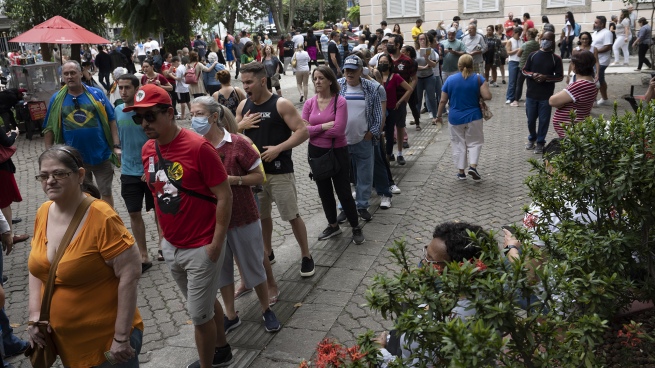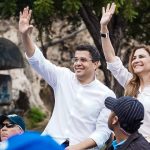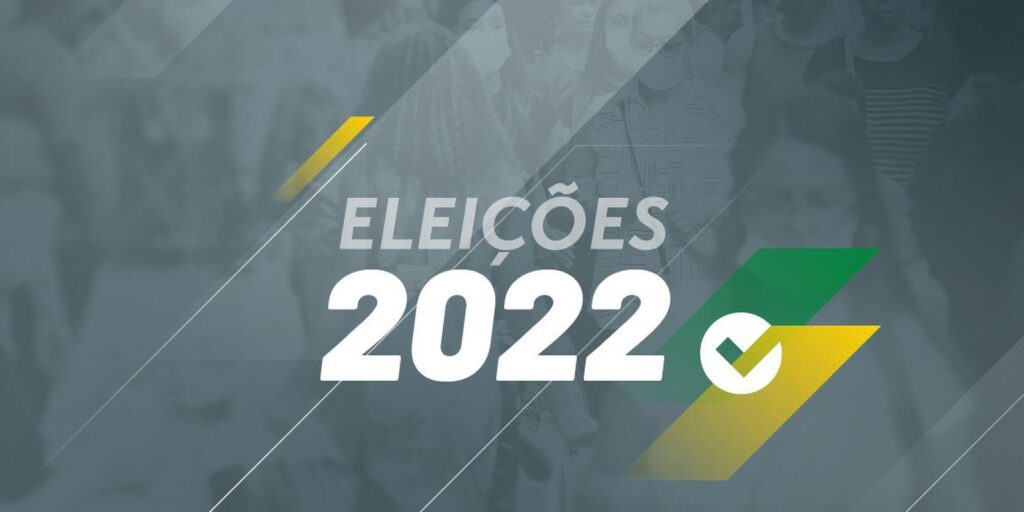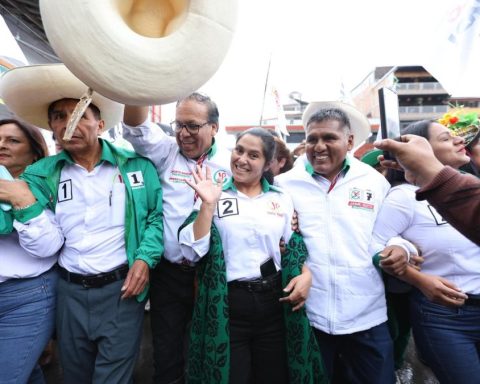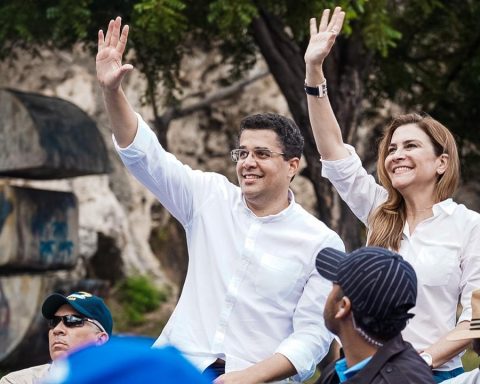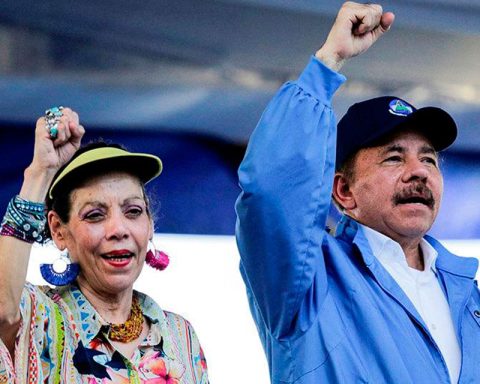By Pablo Giuliano, correspondent, and Ariadna Dacil Lanza, special envoy
(Since Brazil) – Former President Luiz Inácio Lula da Silva affirms himself at the forefront of the scrutiny in Brazil, surpassing the current president, Jair Bolsonaro, by more than three percent of the votes, who obtains around 44 percent, with more than 92 percent of the votes. votes counted, according to data from the Superior Electoral Court (TSE).

During the first hours of the vote, the leader of the Workers’ Party (PT) had been keeping below the far-right president.
To win in the first round you need 50% plus one of the votes. If none of the candidates reaches that number, the Presidency of Brazil will be defined in a ballot on October 30.
The Superior Electoral Tribunal counts only the valid votes to elect the president, that is, it does not include blank or annulled votes.

The Workers’ Party (PT) campaign believes that there was a “silent vote” in favor of President Bolsonaro that was not detected by the polls, which gave their candidate between 50 and 51% of the vote.
“A silent vote was expected for the president, who should have more than 36% of the votes. The campaign was atypical for that reason.”“, one of the historic leaders of the PT, who spoke on condition of anonymity, told Télam.
The leader commented that the expectation is that the votes where the PT should recover ground, and even win the first round, are those of the northeastern states, especially the most populous ones such as Pernambuco, Ceará and Bahia.

Lula’s campaign team is at the Novotel Jaraguá hotel in São Paulo following the vote count and the PT candidate was scheduled to give a speech after 8 p.m.
Bolsonaro, for his part, was following the result at the Alvorada Palace, Brasilia’s official residence, after having voted in Rio de Janeiro in the morning.
The polling stations opened promptly at 8 a.m. and closed generally at 5 p.m., although many of them remained open waiting for the citizens who were lining up at that time to vote.
The day, which passed without major incidents, was characterized by the large influx of citizens, mostly dressed in green and yellow or red clothing, depending on whether they were supporters of Bolsonaro or Lula, who coexisted in peace in the long lines formed in front of the schools.

The former president voted near São Paulo, where he forged his trade union and political activity in the 1970s and 1980s and led the largest labor movement against the military dictatorship that ruled the country from 1964 to 1985.
“I am voting with the possibility of becoming president again so that the country returns to normality,” Lula said.
About 430 kilometers away, the president and former Army captain voted in Rio de Janeiro, at a school in the Villa Militar neighborhood, where he arrived in a caravan of black cars, dressed in the jersey of the Brazilian soccer team.

Bolsonaro, in power since 2019, was asked if he will recognize the results, after having threatened several times not to do so, stating that not only are the polls not credible, but neither is the electronic ballot box system used in Brazil.
“Fair elections must be respected”he told the media, including Télam, before voting, seeming to insinuate that he will only recognize the results if he considers that the process, which is supervised by international observers, was transparent.
More than 156 million Brazilians were qualified to participate in the elections, in which the governors of the 27 states, 21 senators, 513 federal deputies and more than 1,000 regional legislators were also elected.

Voting in Brazil is mandatory for citizens between 18 and 69 years old and optional for those between 16 and 17 and those over 70.
Whoever is the winner, will assume the Presidency on January 1, 2023 and with it, the reins of the largest and most populous country in South America, as well as its largest economy, the tenth in the world, according to the IMF based on GDP nominal.
